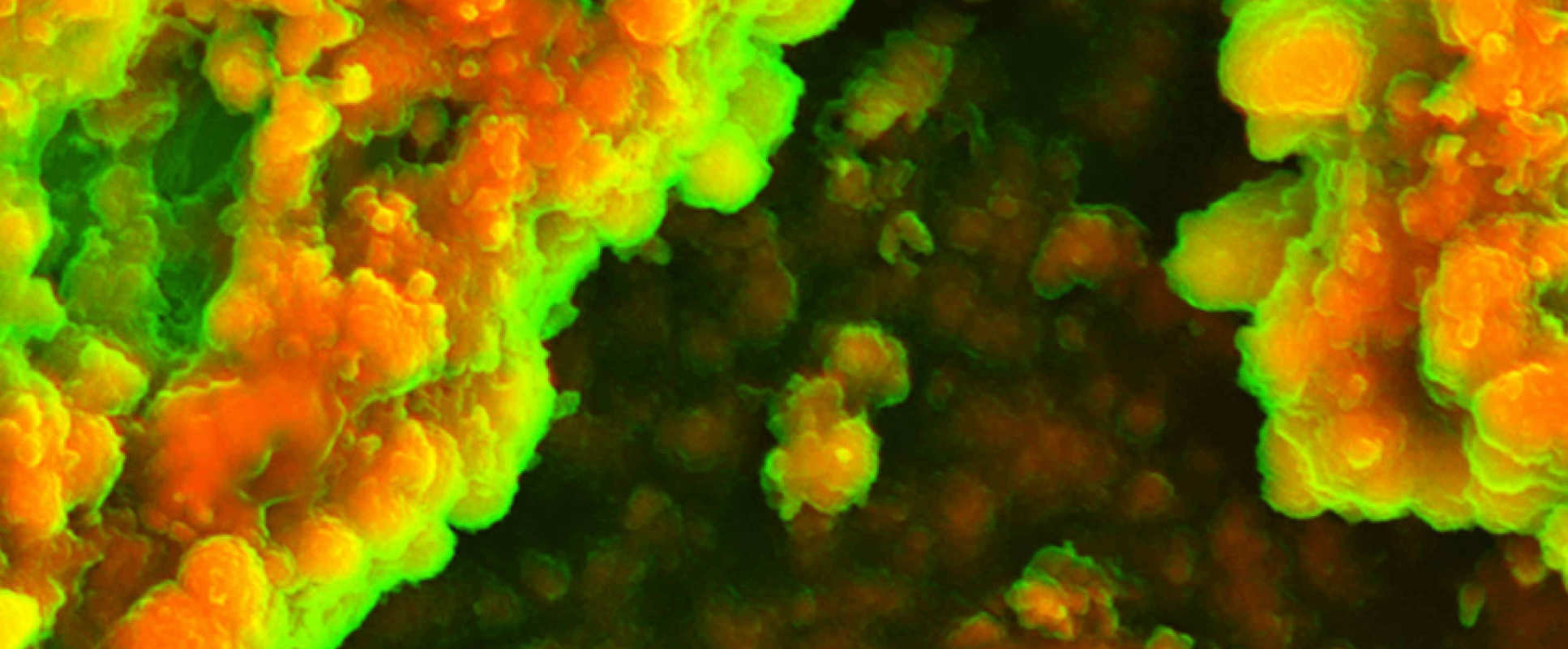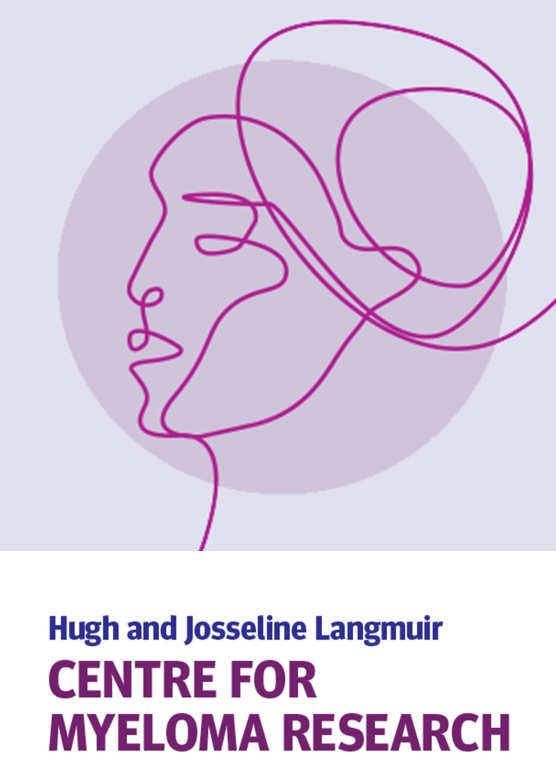
Contact
- CRUK Advanced Clinician Scientist
- Clinical Reader in Molecular Haemato-Oncology
+44 (0)20 3313 4017
holger.auner04@imperial.ac.uk
Areas of research
Proteotoxic stress and metabolism
Myeloma cells are characterised by a unique sensitivity to inhibitors of the proteasome, which is responsible for the controlled degradation of most cellular proteins that have become damaged or are otherwise unwanted. Nevertheless, resistance to proteasome inhibitors occurs in essentially all patients to varying degrees. Accumulation of misfolded proteins in the endoplasmic reticulum (ER), which triggers proteotoxic ‘ER stress’, is widely believed to be the main mechanism of action of proteasome inhibitors. However, data from our lab and other research groups suggest complex interactions between proteasomal protein degradation and multiple metabolic processes. Our aim is to find metabolic and proteostatic vulnerabilities that we can exploit therapeutically.
Tissue biophysics in myeloma biology
Several important aspects of cancer cell biology are influenced by mechanical cues from the surrounding tissue. In particular, mechanical interactions and matrix remodelling have been shown to govern cancer cell metabolism. Tissue stiffness also impacts on normal haematopoiesis, and mechanical cues are known to modulate therapeutic responses. Moreover, we have shown that proteostasis-targeting drugs can alter tissue physical properties. We aim to understand how tissue stiffness and nutrient availability act together to rewire metabolic networks and regulate drug responses in myeloma.
Results
- Showing results for:
- Reset all filters
Search results
-
Journal articleGrosicki S, Simonova M, Spicka I, et al., 2020,
Once-weekly selinexor, bortezomib, and dexamethasone versus twice-weekly bortezomib and dexamethasone in patients with multiple myeloma (BOSTON): a randomised, open-label phase 3 trial
, The Lancet, Vol: 396, Pages: 1563-1573, ISSN: 0140-6736Background Selinexor with dexamethasone has demonstrated activity in patients with heavily pretreated multiple myeloma (MM). In a phase 1b/2 study, the combination of oral selinexor with the proteasome inhibitor (PI) bortezomib, and dexamethasone (SVd) induced high response rates with low rates of peripheral neuropathy, the main dose-limiting toxicity of bortezomib. The aim of this trial was to evaluate the clinical benefit of weekly SVd versus standard bortezomib and dexamethasone (Vd) in patients with previously treated MM.Methods This phase 3, randomised, open label trial was conducted at 123 sites in 21 countries. Patients who were previously treated with one to three lines of therapy, including PIs were randomised (1:1) to selinexor (100 mg once-weekly) plus bortezomib (1·3 mg/m2 once-weekly) and dexamethasone (20 mg twice-weekly) [SVd] or bortezomib (1·3 mg/m2 twice-weekly) and dexamethasone (20 mg 4 times per week) [Vd]. Randomisation was done using interactive response technology and stratified by previous PI therapy, lines of treatment, and MM stage. The primary endpoint was progression-free survival (PFS) in the intention-to-treat population. Patients who received at least one dose of study treatment were included in the safety population. This trial is registered at ClinicalTrials.gov, NCT03110562.Findings Between June 2017 and February 2019, 402 patients were randomised: 195 to SVd and 207 to Vd. Median PFS was 13·93 (95% CI 11·73–NE) with SVd versus 9·46 months (8·11–10·78) with Vd; HR 0·70, [95% CI 0·53–0·93]; P=0.0075. Most frequent grade ≥3 adverse events (SVd vs Vd) were thrombocytopenia (77 [40%] vs 35 [17%]), fatigue (26 [13%] vs 2 [1%]), anaemia (31 [16%] vs 20 [10%]), and pneumonia (22 [11%] vs 22 [11%]). Peripheral neuropathy rates (overall, 32·3% vs 47·1%; OR 0·52, [95% CI 0·35-0·79]; P=0.0010 and grade ≥2, 21&middo
-
Conference paperSanchez L, Leleu X, Beaumont J, et al., 2020,
Peripheral Neuropathy Symptoms, Pain and Functioning in Relapsed or Refractory Multiple Myeloma Patients Treated with Selinexor, Bortezomib, and Dexamethasone
, Publisher: AMER SOC HEMATOLOGY, ISSN: 0006-4971 -
Conference paperAuner HW, Gavriatopoulou M, Delimpasi S, et al., 2020,
Once Weekly Selinexor, Bortezomib, and Dexamethasone Versus Twice Weekly Bortezomib and Dexamethasone in Relapsed or Refractory Multiple Myeloma: Age and Frailty Subgroup Analyses from the Phase 3 Boston Study
, Publisher: AMER SOC HEMATOLOGY, ISSN: 0006-4971- Author Web Link
- Cite
- Citations: 2
-
Conference paperMateos M, Gavriatopoulou M, Facon T, et al., 2020,
Effect of Prior Treatment with Proteasome Inhibitors on the Efficacy and Safety of Once-Weekly Selinexor, Bortezomib, and Dexamethasone in Comparison with Twice-Weekly Bortezomib and Dexamethasone in Relapsed or Refractory Multiple Myeloma: Subgroup Analysis from the Boston Study
, Publisher: AMER SOC HEMATOLOGY, ISSN: 0006-4971 -
Conference paperRichard S, Chari A, Delimpasi S, et al., 2020,
Once Weekly Selinexor, Bortezomib, and Dexamethasone (SVd) Versus Twice Weekly Bortezomib and Dexamethasone (Vd) in Relapsed or Refractory Multiple Myeloma: High-Risk Cytogenetic Risk Planned Subgroup Analyses from the Phase 3 Boston Study
, Publisher: AMER SOC HEMATOLOGY, ISSN: 0006-4971- Author Web Link
- Cite
- Citations: 1
This data is extracted from the Web of Science and reproduced under a licence from Thomson Reuters. You may not copy or re-distribute this data in whole or in part without the written consent of the Science business of Thomson Reuters.
